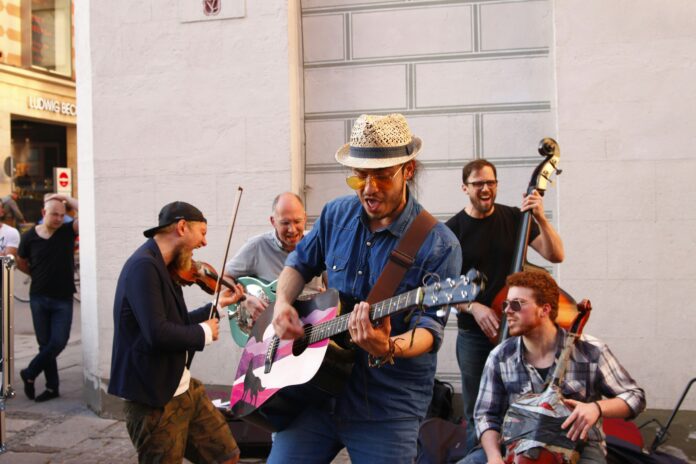Different styles of music are loved by many people worldwide. However, people often see music only as a way to entertain themselves. As Music Industry Weekly states, it has long reflected society, mirroring not just personal emotions but also collective experiences. Rock and metal, in particular, have developed a reputation for taking bold stands on issues many would rather ignore.
Beyond entertainment, these genres have often addressed issues such as addiction, depression, environmental collapse, and political corruption. Through their art, musicians give a human face to statistics and headlines, making public health crises feel immediate and personal. Fans often relate to the rawness in these songs, seeing their struggles and fears represented more authentically than in sanitised public campaigns.
The tradition of speaking openly about health-related issues isn’t a recent phenomenon either. Artists from previous decades laid the groundwork by shedding light on topics like alcoholism and mental breakdowns. Their efforts helped create a space where both musicians and fans could find a shared language to talk about difficult topics.
In this article, we will look at how bands are raising awareness to tackle public health issues through music.
From Clinical Discussions to Concert Halls
Public health issues are usually framed in medical terms through statistics, diagnoses, and clinical studies. While necessary, this approach can sometimes feel detached from the real experiences of those affected. Musicians bring warmth, rage, and real human stories into these conversations, bridging the emotional gap.
For instance, there are many artists who have openly discussed mental health problems. From Billie Eilish to Selena Gomez, many stars have shared their thoughts and experiences. Similarly, many bands like The Beatles, Pink Floyd, and Led Zeppelin are featured in playlists of those suffering from mental health problems.
Musicians are also creating songs to raise awareness about reproductive rights and unwanted pregnancies. For example, Latto’s and Chloe’s latest albums, released in 2024, feature songs that refer to these pregnancies and emergency contraception. There are many such artists and bands who are discussing contraception and women’s rights about how to approach pregnancy.
This has been a result of the adverse side effects of unwanted pregnancies and even contraceptive methods used by women. For example, Depo-Provera is a hormonal contraception that has been associated with severe side effects. In fact, users face a 555% higher risk of developing meningioma. Therefore, affected individuals have also filed a Depo-Provera lawsuit against the manufacturer.
Why do musicians succeed in humanising public health issues better than traditional media?
Musicians often present health issues through personal experiences and emotional storytelling, which can make complex or distant problems feel relatable. Traditional media sometimes relies too heavily on numbers and policy discussions, missing the raw, emotional component that music captures through lyrics, tone, and performance.
When Heavy Riffs Meet Heavy Issues
Heavy music is uniquely suited to tackling difficult subjects. The intensity of rock and metal matches the weight of issues like disease outbreaks, mental health crises, and substance abuse epidemics.
Albums like Toxicity by System of a Down offer biting social commentary wrapped in chaotic yet tightly controlled soundscapes. The song resonated so much with the audience that it hit one billion views on YouTube. Similarly, Rage Against the Machine uses aggressive rhythms and furious vocals to criticise systemic inequalities that contribute to poor public health outcomes.
The AIDS epidemic in the 1980s and ’90s, for example, inspired numerous artists to speak out against government inaction. Punk and hardcore scenes became hotbeds of advocacy, with bands encouraging fans to educate themselves about safe practices. More recently, the opioid crisis has inspired songs that mourn lost friends and call for better mental health support.
The emotional turbulence captured in heavy music is often a direct response to real suffering. Cities ravaged by addiction and neglected communities all find a voice in the pounding drums and wailing guitars of rock and metal. The authenticity of these expressions allows listeners to feel seen and heard, even when mainstream platforms fail them.
Are there sub-genres within metal that focus more heavily on health and social commentary?
Yes, sub-genres like hardcore punk, sludge metal, and grindcore often focus more intensely on health and social issues. These styles use raw aggression and stripped-down production to deliver direct messages about societal failures, personal trauma, and public health neglect.
Beyond the Music: Advocacy and Action
While lyrics and live performances are powerful tools for raising awareness, many musicians choose to extend their activism beyond their music. Benefit concerts have become a well-established tradition. They are often organised to raise money for medical research, treatment programs, or disaster relief efforts.
One such example is the FireAid benefit concert in Los Angeles. According to CNN, the concert was organised to offer support to relief efforts for the deadly wildfire in Los Angeles. It ignited in January 2025 and claimed 29 lives while causing damage worth billions.
Bands use these events to turn their influence into tangible action, offering fans a direct way to contribute to important causes.
Outspoken interviews and social media posts provide another avenue for advocacy. Musicians often use their platforms to highlight health campaigns and share personal stories about illness and recovery. Some artists partner with nonprofits to promote mental health support, drug rehabilitation programs, or healthcare access initiatives.
By stepping into the role of public advocates, musicians challenge the idea that they should only entertain. Instead, they show that artists can be active participants in shaping healthier, more informed societies. Their advocacy creates ripples that reach far beyond the walls of concert venues, inspiring fans to take action in their own lives.
What are some famous examples of musicians starting their own health initiatives?
Several musicians have launched initiatives to support health causes. For example, Lady Gaga co-founded the Born This Way Foundation to promote youth mental health. Similarly, Metallica’s All Within My Hands Foundation supports food banks and workforce education, showing that music influence can extend to direct, ongoing health support.
Rock and metal have long shown that music can be a driving force in public conversations about health. By tapping into real emotions and lived experiences, musicians make complex issues more relatable and harder to ignore. Their songs, performances, and activism keep public health concerns visible beyond traditional platforms.
As new challenges continue to shape society, bands will likely find new ways to amplify voices that need to be heard. Heavy music’s raw honesty ensures that important health conversations won’t be pushed into the background.



















